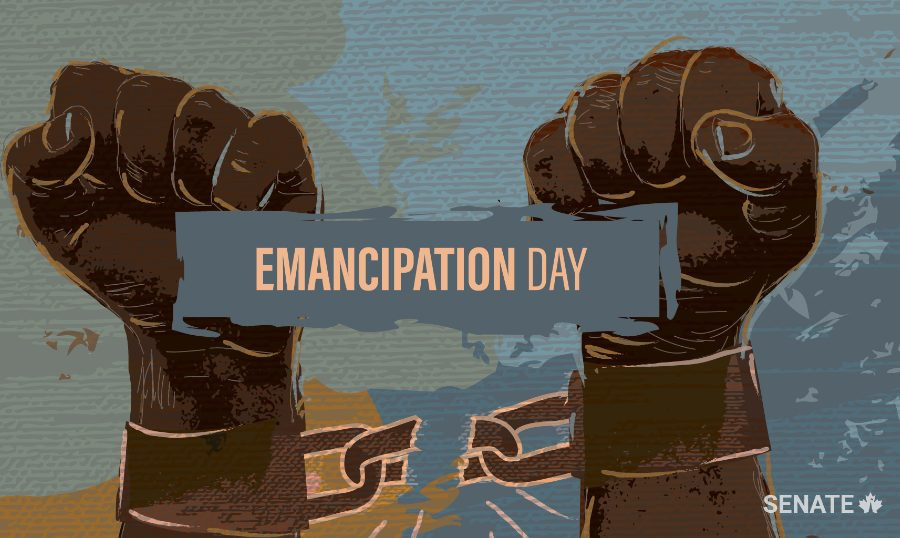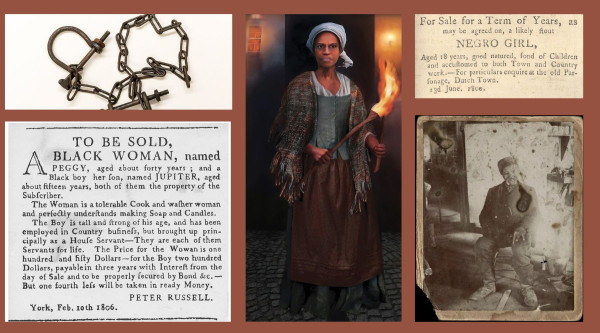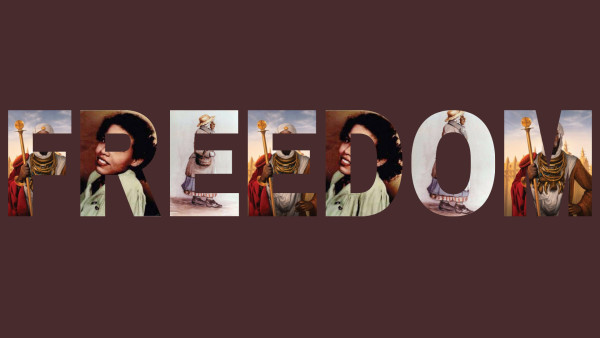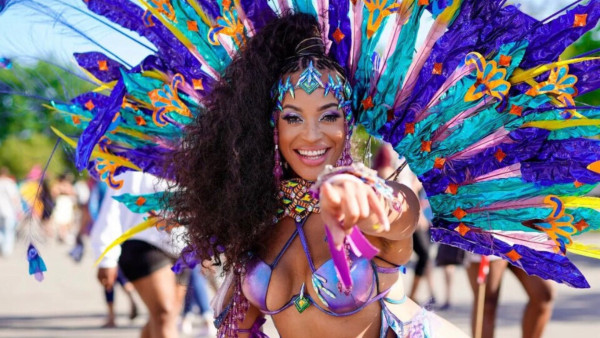“This first bill set a precedent for others like it. In essence, we are commemorating the beginning of freedom for the world, not just Canada,” says Rosemary Sadlier, a female historian who has been advocating for over 25 years. Sadlier has championed both Black History Month and Emancipation Day on a local, regional, and national level.
The murder of George Floyd last year drove the point home that Emancipation Day, and the entire Black Lives Matter movement, should be given more importance. This year, Canada bolstered its commitment to freedom by designating August 1 as a 'national holiday'. Previously, it has only been a regional recognition.
“Emancipation Day celebrates the experience, the resilience, and the resistance of enslaved people and those who fought for freedom. On top of that, the fact that it has happened now as of 24 March 2021 is incredibly important because it's the first time that Canada will be required, to look at our history of slavery and abolition that took place right in this country. And I think it's the beginning of having difficult discussions and advocating for more rights,” says Sadlier.
Natasha Henry, President of Ontario Black History Society (OBHS) and an author, shares similar sentiments on Emancipation Day. She believes that although it has always been important, the events of last year made Emancipation Day even more important.
“Black people have always expressed their feelings around legal freedom and citizenship on Emancipation Day. Emancipation Day is an illustration of their insights into oppression, slavery, and freedom. It's a platform to raise issues around racial discrimination,” explains Henry.
How to Celebrate Emancipation Day
She also believes that the day provides opportunities to both Black and non-Black people. “It's a space for everyone to come together and continue the tradition of commemorating, planning, setting agendas, raising issues, and advocating for substantive change in policymaking to systemically improve the lives of Black people,” she explains.
Also, Henry wants to emphasize the fact that the theme for Emancipation Day can be adjusted and adapted to conform to the wider meaning of freedom and liberation, but the central theme continues to be freedom and liberation for Black lives. She adds that the importance of knowing Black history and recognizing the efforts of individuals and communities that secured freedom for this generation continue to be core elements of the celebration.
Sadlier believes that the government has a role to play to underscore its commitment to diversity and inclusion and to take actions that can address systemic racism.
“It's not about partying as much as it's about the pursuit of justice. We need people in government positions to hear our requests, demands, and do something about them. We need more accountability,” stresses Sadlier.
Readiness of Young People to Take the Effort to the Next Level
According to Sadlier, the next generation of people must accept the reality that freedom is worth the fight and the constant struggle to achieve liberation. This will require everyone from all walks of life to come together and advocate for the pursuit of justice.
“Populations change, cultures change, and our perspectives change. The meaning of freedom also changes. Our ancestors hoped for freedom from chattel slavery. Today, we hope for full equity and privileges of citizenship that other people enjoy. Future generations may seek other forms of liberation,” explains Sadlier.
It's about empowering people to push for change. Henry is very happy that young Black people continue to carry on that tradition.
“We have seen many young people take up the cause and speak out publicly against systemic racism,” says Henry.
She is also motivated to educate the younger generation and advocates for the teaching of Black history at the community level so that knowledge becomes more widespread.
“The more you teach Black history to young people, the more they are willing to engage in civic action contributing for positive change. We want to see change, growth, and improvement in freedom for Black Canadians and for all Canadians in general,” says Henry.
This discussion would not be complete without mentioning OBHS’ current efforts to promote a museum space to preserve Black history and educate people. OBHS is also conducting a unique campaign called “Blacked Out History,” to introduce Black history in Ontario schools. As a matter of fact, this is a decades-long demand from Black parents in Ontario.
“The systemic exclusion of Black history in our curriculum shows that systemic racism is still prevalent in this country,” says Henry.
Emancipation Day 2021
Now that Canada celebrates Emancipation Day on a national level, the hope is that more people will be compelled to do things in their own provinces.
The OBHS will celebrate Emancipation Day virtually on August 1 at 6 PM. The organization is looking forward to welcoming people from Canada and other parts of the world.
“It's great to see that many organizations are also hosting Emancipation Day events. This will encourage more people to tune in and support in their capacity. We hope to continue the commemoration in person next year,” says Henry.
Sadlier appreciates the fact that so many people are participating in celebrations.
“We've only had two celebrations of Emancipation Day. One was in Windsor, Ontario, and the other was organized by Bertrand Joseph Spencer Pitt. These events ended in the 60s. When I began to have the events that I was having, I had no model for what the right thing is to include in an event. But we always had an educational piece, a social piece, sometimes a spiritual piece. Today, we have more organizations doing positive things - and this time, all across Canada,” says Sadlier.
Sadlier also suggested having an entity commissioned by the Federal Government that would roll out Emancipation Day. She looks forward to seeing something big and more 'central' next year.
“We were hoping to mimic the success of Juneteenth in the US and have various corporations, entities, and schools participating in celebrations,” comments Sadlier.
Sadlier is also doing a celebration this year in conjunction with various community partners who will be online on YouTube live on August 1st at 1 PM.
“I celebrate Emancipation Day in many ways. I have a spiritual component, a government component, a community component, an educational historical component, and an art component,” explains Sadlier.
Dreams for Canada
Henry continues her work towards a society that provides justice and equality to not only Black people but also Indigenous people. In the future, she hopes to see a society that provides everyone with true equity.
“I hope that Canada will be a country where everyone has a place and takes care of each other; where we deal with homelessness in a humane compassionate way; where the government values its people; have universal health care so that people can live fulfilling lives and to society as a whole. We can all benefit from Emancipation Day.” says Henry.
Similarly, for the future, Sadlier hopes for a society in which people will be treated equally and will have equal opportunities.
“I'm hoping for all of us to have the same ability to apply for financing, apply for jobs, apply to schools and get in, and be able to take care of ourselves and our families. These are basic things, but we are still fighting to have them. I hope that we will achieve them in the very near future."

 By
By 





